






Thera Bespoke
Verified Center
This provider's information has been quality-checked by Recovery.com's Research Team for accuracy and completeness, including center verification through appropriate third-party organizations.
Treatment Focus
This center treats substance use disorders and mental health conditions. You'll receive individualized care catered to your unique situation and diagnosis, learn practical skills for recovery, and make new connections in a restorative environment.
Primary Level of Care
Offering intensive care with 24/7 monitoring, residential treatment is typically 30 days and can cover multiple levels of care. Length can range from 14 to 90 days typically.
Treatment Focus
This center treats substance use disorders and mental health conditions. You'll receive individualized care catered to your unique situation and diagnosis, learn practical skills for recovery, and make new connections in a restorative environment.
Primary Level of Care
Offering intensive care with 24/7 monitoring, residential treatment is typically 30 days and can cover multiple levels of care. Length can range from 14 to 90 days typically.
Private Pay
You pay directly for treatment out of pocket. This approach can offer enhanced privacy and flexibility, without involving insurance. Exact costs vary based on program and length of stay. Contact the center for specific details.
Thera Bespoke
Thera Bespoke
About Thera Bespoke
Thera provides bespoke treatment for executives, high-net-worth individuals, and professional clientele that prefer discretion and tailored care. Paul Tanner, psychologist, quantum energy coach, and co-founder of Thera, created a unique Zero Protocol™ program. His approach focuses on self-awareness and inner change, helping clients reinvent themselves and become the heroes of their own lives. Thera also uses evidence-based therapies like cognitive behavioral therapy (CBT) and wellness activities to help clients recover from substance addictions, mental health conditions, and process addictions.
Comprehensive, Custom Treatment
Thera offers a wide range of evidence-based, spiritual, and experiential activities, tailored to the needs of each client. They treat just one client at a time, keeping each aspect of treatment 1:1 and bespoke. Thera’s evidence-based therapies include CBT, dialectical behavioral therapy (DBT), tension and trauma releasing exercises (TRE), motivational interviewing techniques, Gestalt therapy, and 12-Step practices. They also offer movement and fitness classes, art therapy, educational seminars for clients and their families, acupuncture, nutritional counselling, and Qi Gong.
Tailored Programming
Thera provides treatment for substance and process addictions, and screen addiction (phone addiction). They treat depression, anxiety, codependency, trauma, and stress to help heal the causing factor of addiction. Thera also offers burnout treatment, helping executives and other working professionals recover from intense workloads and stress. Their ongoing care program invites clients back for a short immersion in healing, while Thera’s primary program welcomes clients for longer stays with 15 hours of therapy each week.
Private, Confidential, And Bespoke
Clients at Thera can enjoy a treatment team that caters to their clinical, emotional, spiritual, and physical healing. Clients stay in their own secluded villa during treatment. All staff are well-versed in confidentiality. Thera offers refreshing off-site excursions, including waterfall visits, water temple visits, volcano treks, surfing lessons, whitewater rafting, cooking classes, guided rice field walks, and sailing trips around the islands, for an extra fee. Families can visit their villa for educational seminars and family therapy.
Highlights from the Center
Highlights
These highlights are provided by and paid for by the center.
Concierge Approach
One Client at a Time
Perfect for UHNWI
Utmost Confidentiality
Center Overview
Treatment Focus
This center treats substance use disorders and mental health conditions. You'll receive individualized care catered to your unique situation and diagnosis, learn practical skills for recovery, and make new connections in a restorative environment.

Claim it
Pricing and Program Length
Estimated Center Costs
The cost listed here (€18.000 – 28.000 / week), is an estimate of program cost. Center price can vary based on program and length of stay. Contact the center for more information. Recovery.com strives for price transparency so you can make an informed decision.
Luxury rehab centers offer a unique blend of luxurious amenities and high-quality treatment. From private suites to gourmet dining, personal trainers to spa treatments, these facilities provide a high level of comfort and discretion.

Meet Your Care Team
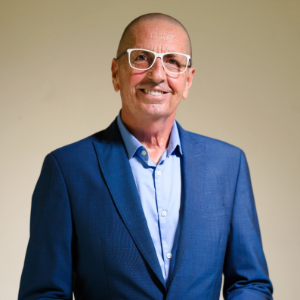
Paul Nicholas Tanner
Clinical Director & Treatment Programs Creator

Dr. Putu Belly Sutrisna
PhD
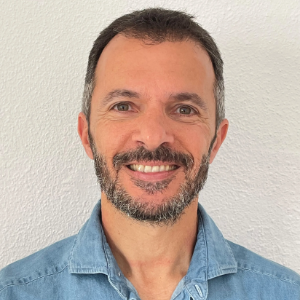
Dr. Manuel Rodríguez de la Torre
International Consultant Psychiatrist

Dr. Diah Fridari
PhD
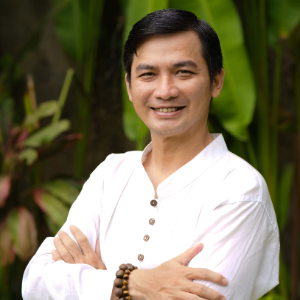
Jon Win Lee
Chinese Medicine, Acupuncture & Medical Qi Gong

Yatina Maulida Syam
Executive Concierge
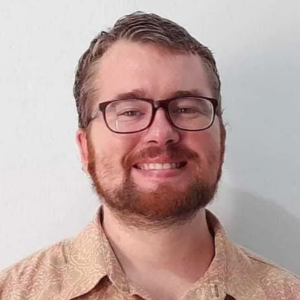
Dr. Thomas A. Budd
PhD
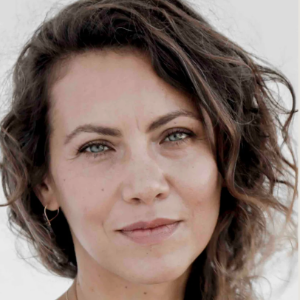
Daga Cybruch
International TRE and Gestalt Provider
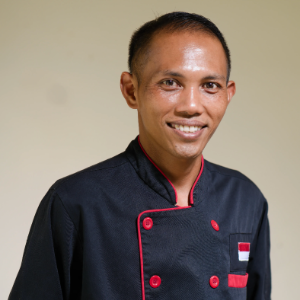
Putu Sukiyadnya
Dedicated Personal Chef
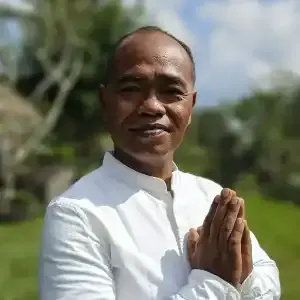
Guru Made Sumantra
Traditional Balinese Healer

Gusti Ayu Abdi Asrini
Hypnotist and Massage Therapist

Yunita Senjaya
Acupuncturist

Ni Wayan Apring Gaya (Aping)




Levels of Care










Your Care Options
Specializations
Co-Occurring Disorders
A person with multiple mental health diagnoses, such as addiction and depression, has co-occurring disorders also called dual diagnosis.
Drug Addiction
Drug addiction is the excessive and repetitive use of substances, despite harmful consequences to a person's life, health, and relationships.
Executives
Executive treatment programs typically directly support the needs of people who manage businesses and may provide flexible schedules and office space to allow work during treatment.
Trauma
Some traumatic events are so disturbing that they cause long-term mental health problems. Those ongoing issues can also be referred to as "trauma."
One-to-One
Patients work with their treatment team members on a 1-on-1 basis, keeping their journey and treatment fully private and personalized.
Alcohol
Using alcohol as a coping mechanism, or drinking excessively throughout the week, signals an alcohol use disorder.
Burnout
Burnout entails mental and physical exhaustion, and leads to a severe lack of fulfillment. This condition is often caused by overwork.
Who We Treat
Men and Women
Men and women attend treatment for addiction in a co-ed setting, going to therapy groups together to share experiences, struggles, and successes.
Young Adults
Emerging adults ages 18-25 receive treatment catered to the unique challenges of early adulthood, like college, risky behaviors, and vocational struggles.
Executives
Executive treatment programs typically directly support the needs of people who manage businesses and may provide flexible schedules and office space to allow work during treatment.
Midlife Adults
For adults ages 40+, treatment shifts to focus on the unique challenges, blocks, and risk factors of their age group, and unites peers in a similar community.
Older Adults
Addiction and mental health treatment caters to adults 55+ and the age-specific challenges that can come with recovery, wellness, and overall happiness.
LGBTQ+
Addiction and mental illnesses in the LGBTQ+ community must be treated with an affirming, safe, and relevant approach, which many centers provide.
Approaches
Personalized Treatment
The specific needs, histories, and conditions of individual patients receive personalized, highly relevant care throughout their recovery journey.
Holistic
A non-medicinal, wellness-focused approach that aims to align the mind, body, and spirit for deep and lasting healing.
Evidence-Based
A combination of scientifically rooted therapies and treatments make up evidence-based care, defined by their measured and proven results.
Therapies
Stress Management
Patients learn specific stress management techniques, like breathing exercises and how to safely anticipate triggers.
Spiritual Care
Tending to spiritual health helps treatment become more effective, allowing patients to better cope with their emotions and rebuild their spiritual wellbeing.
Physiotherapy
Also called physical therapy, this approach includes exercise and various medical treatments for injury, pain, and disease.
1-on-1 Counseling
Patient and therapist meet 1-on-1 to work through difficult emotions and behavioral challenges in a personal, private setting.
Family Therapy
Family therapy addresses group dynamics within a family system, with a focus on improving communication and interrupting unhealthy relationship patterns.
Conditions We Treat
Post Traumatic Stress Disorder
PTSD is a long-term mental health issue caused by a disturbing event or events. Symptoms include anxiety, dissociation, flashbacks, and intrusive thoughts.
Anxiety
Anxiety is a common mental health condition that can include excessive worry, panic attacks, physical tension, and increased blood pressure.
Depression
Symptoms of depression may include fatigue, a sense of numbness, and loss of interest in activities. This condition can range from mild to severe.
Grief and Loss
Grief is a natural reaction to loss, but severe grief can interfere with your ability to function. You can get treatment for this condition.
Codependency
Codependency is a pattern of emotional dependence and controlling behavior. It's most common among people with addicted loved ones.
Obsessive Compulsive Disorder (OCD)
OCD is characterized by intrusive and distressing thoughts that drive repetitive behaviors. This pattern disrupts daily life and relationships.
Pornography Addiction
A person with a porn addiction is emotionally dependent on pornography to the point that it interferes with their daily life and relationships.
Substances We Treat
Cocaine
Cocaine is a stimulant with euphoric effects. Agitation, muscle ticks, psychosis, and heart issues are common symptoms of cocaine abuse.
Prescription Drugs
It's possible to abuse any drug, even prescribed ones. If you crave a medication, or regularly take it more than directed, you may have an addiction.
Benzodiazepines
Benzodiazepines are prescribed to treat anxiety and sleep issues. They are highly habit forming, and their abuse can cause mood changes and poor judgement.
Ecstasy
Ecstasy is a stimulant that causes intense euphoria and heightened awareness. Abuse of this drug can trigger depression, insomnia, and memory problems.
Co-Occurring Disorders
A person with multiple mental health diagnoses, such as addiction and depression, has co-occurring disorders also called dual diagnosis.
Psychedelics
Hallucinogenic drugs—like LSD—cause euphoria and increased sensory experiences. When abused, they can lead to depression and psychosis.
Drug Addiction
Drug addiction is the excessive and repetitive use of substances, despite harmful consequences to a person's life, health, and relationships.
Languages
Aftercare
Care Designed for Your Needs
Personal Amenities
Amenities
Special Considerations
Young Adults Program
Programs for young adults bring teens 18+ together to discuss age-specific challenges, vocational and educational progress, and successes in treatment.
Healthy Meals are provided
Great food meets great treatment, with providers serving healthy meals to restore nutrition, wellbeing, and health.
Religion-Based Track
Patients can join faith-based recovery tracks to approach recovery with others in their faith, healing in a like-minded group with similar goals.
Pet Friendly
For greater comfort and healing, pet-friendly treatment centers welcome dogs and animal companions to stay with their owners while they attend treatment.
Clients can bring their own pet(s)
For greater comfort and healing, pet-friendly treatment centers welcome dogs and animal companions to stay with their owners while they attend treatment.
Activities
Yoga
Yoga is both a physical and spiritual practice. It includes a flow of movement, breathing techniques, and meditation.
Off-Site Activities
Off-Site Amenities

Claim it
What people are saying
Treatment
5.0
Accommodations
5.0
Food & Nutrition
5.0
Value
5.0
Pros
- Supportive Aftercare (3)
- Personalized (2)
- Treated With Respect (2)
- Access to Nature (2)
Lukas S
2024 • (30 days) • Reviewed September 26th, 2024
Former Client
•Businessman
•Sweden
RK TH
Reviewed February 26th, 2023
Referring Professional
•Therapist
K.M. Gallage
2020 • (14 days) • Reviewed February 22nd, 2023
Former Client
•Software Developer
•U.A.E.





